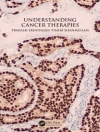This book focuses on the use of various molecules with antioxidant properties in the treatment of major male genital tract disorders, especially male infertility, erectile dysfunction, and accessory gland infection. The coverage also includes discussion of pathophysiology, the molecular basis of male infertility, and the rationale for use of antioxidants, with particular attention to coenzyme Q10 and carnitine. Oxidative stress occurs when the production of reactive oxygen species, including free radicals, exceeds the body’s natural antioxidant defences, leading to cellular damage. Oxidative stress is present in about half of all infertile men, and reactive oxygen species can produce infertility both by damaging the sperm membrane, with consequences for sperm motility, and by altering the sperm DNA. There is consequently a clear rationale for the use of antioxidant treatments within andrology, and various in vitro and in vivo studies have indicated that many antioxidants indeed have beneficial impacts. In providing a detailed and up-to-date overview of the subject, this book will be of interest to both practitioners and researchers in andrology, endocrinology, and urology.
Daftar Isi
Biochemistry of coenzyme Q10.- Coenzyme Q10 in male infertility.- Carnitine in male infertility.- Free radicals in andrology.- Antioxidants in male sexual disorders.- Antioxidants in major accessory gland infections.
Tentang Penulis
Giancarlo Balercia is Professor and Director of the Division of Endocrinology at the Polytechnic University of Marche – Ospedali Riuniti Ancona, Ancona, Italy. He undertakes clinical research in andrology and personally manages the university’s activities in the field, including the Laboratory of Andrology. He is Chief of the Regional Section (Marche Region) of the Italian Society of Medical Andrology and Sexology and served as a Member of the Board of the Italian Society of Medical Andrology and Sexology from 2002 to 2008. Dr. Balercia is an Academician of the European Academy of Andrology. He has published more than 350 scientific papers, including in leading scientific journals.
Loredana Gandini is a specialist in Reproductive Medicine and Andrology at the Department of Experimental Medicine, University of Rome ‘La Sapienza’, Rome, Italy. She is Full Professor of Clinical Pathology at the university, and also Director of the Laboratory of Seminology and Sperm Bank (Policlinico Umberto I University Hospital). Dr. Gandini is President of the Italian Society of Physiopathology of Reproduction and Past President of the Italian Society of Reproduction, Embryology, and Research. She is the lead or co-author of more than 100 papers in international and national journals and acts as a reviewer for various leading international journals in the field.
Andrea Lenzi is Full Professor of Endocrinology in the Department of Experimental Medicine, University of Rome ‘La Sapienza’, Rome, Italy. He is Director of the Unit of Andrology, Reproductive Physiopathology, and Endocrine Diagnosis and Coordinator of the Laboratories of Endocrinology at the Policlinico Umberto I University Hospital, Rome. Dr. Lenzi is President of the Italian National University Council and Director of the Interuniversity Research Centre for Experimental Andrology (CASPER). He is President of the Italian Society of Endocrinology. He has served as Secretary General of the International Society for Immunology of Reproduction (1999–2004), the Alps-Adria Society for Immunology of Reproduction (1998–2001), and the Executive Council of the European Academy of Andrology (2002–2010). Dr. Lenzi has also been President of the Italian Society of Andrology and Medical Sexology (2008–2010). He is a member of the editorial boards of various international scientific journals and has published more than 220 original papers in the main international journals in the field. He is co-editor of the recent Springer book, Multidisciplinary Management of Obesity.
Francesco Lombardo is an Associate Professor in Medical Sciences in the Department of Experimental Medicine – Section Medical Pathophysiology, University of Rome ‘La Sapienza’, and also works in the Laboratory of Seminology and Sperm Bank, Policlinico Umberto I University Hospital, Rome, Italy. He has long been involved in the project ‘Prevention and Control of Disease Factors’ (FATMA), subproject ‘Control of Human Fertility’ of the Italian National Council of Research and is Scientific Lead in the Italian Programme of Research of National Interest (PRIN-2008), “Study of the potential fertilization ability of young obese patients”. Dr. Lombardo is the author of more than 20 scientific publications.












